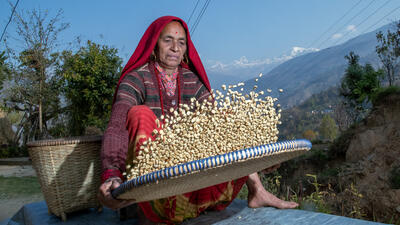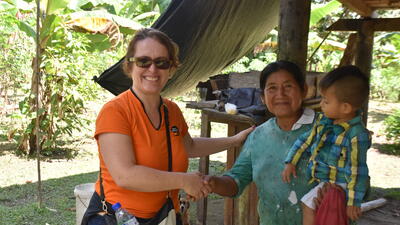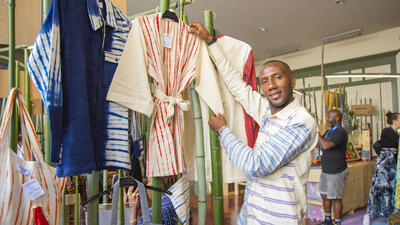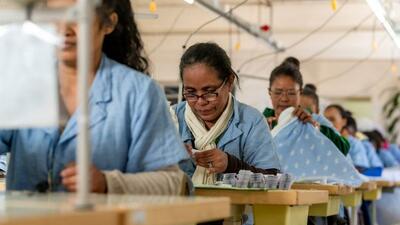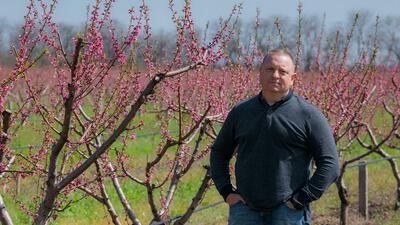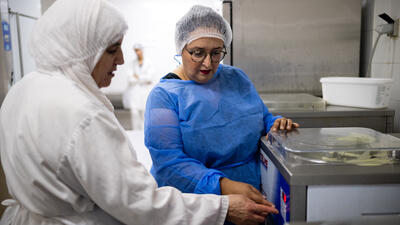
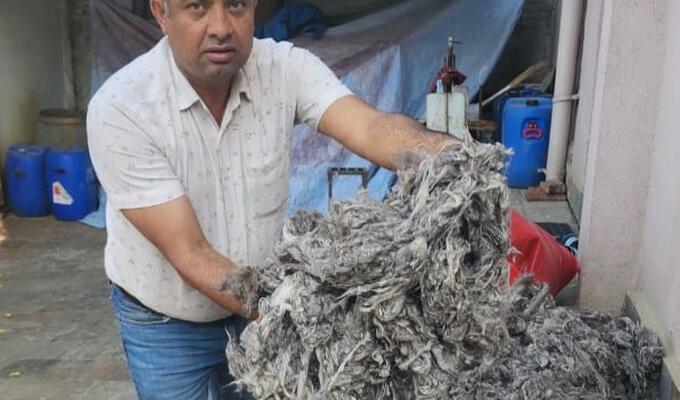
Enhancing the processing of raw wool in Nepal
For Micro-, Small, and Medium-sized Enterprises Day 2023, we celebrate small entrepreneurs from all over the world. Small businesses account for 90% of the world's businesses, 60 to 70% of employment, and 50% of the global economy. They contribute to local and national economies and to the achievement of the Sustainable Development Goals. For MSME Day, we have interviewed Dhan Prasad Lamichhane, the president of Nepal Fibre Processing Private Limited.
Tell us about your company.
My name is Dhan Prasad Lamichhane, I am the president of Nepal Fibre Processing Private Limited (NFPPL). The NFPPL is run by 59 small entrepreneurs involved in the Chyangra Pashmina sector. The company was established in 2021 to enhance the collection and processing of raw Chyangra fibre to cope with the scarcity of fibre due to the disruption in fibre supply from China during the COVID-19 period.
This company has been collecting Chyangra fibre from Mustang and Dulpa districts with technical support and facilitation by ITC. A Training of Trainers (ToT) showed farmers and veterinarians how to comb wool from Chyangra mountain goats in Mustang district, the top producer of the wool used to make cashmere. After the training, their wool collection jumped 20 percent this year, thanks to their new skills and better combs.
With ITC support, the new trainers have taught farmers in Manang and Dolpa districts their new skills and tools. NFPPL will further benefit from ITC support as farmers apply their knowledge to increase wool production and benefit from fibre grading. Now, the farmers can sell raw fibres for up to 5,500 rupees (about $41) per kilogramme, depending on the quality.
What are your challenges?
The key problem we are facing is that farmers can’t supply enough fibre to meet our company’s requirements. Our company needs 15kg of raw fibre per day to run the processing plant, but we are hardly arranging 6-8kg of fibre per day. Increasing the supply of fibre to our company is challenging given the limited number of Chyangra and low level of fibre collection from farmers. However, things are getting better as the collection has increased compared to the previous year.
What are your needs for further growth?
We need to train more farmers in modern techniques of fibre combing so that production and productivity increase in Chyangra-producing districts. Thanks to ITC’s support in conducting a Training of Trainers for local farmers in Mustang, Dolpa and Manang. Now we need to spread knowledge among larger groups through those trained farmers. The government policy should support incentivizing farmers and Pashmina producers along with support to purchase processing machinery. We also need assistance in marketing our Pashmina products with attractive branding in the international market, with support for our participation in expos and other promotional events. An internationally accredited lab is necessary within the country for testing the quality of fibre. A smart showroom of Chyangra Pashmina products with audio-visual displays needs to be established in Kathmandu for their promotion.
What is your best success?
We established this company as the first of its kind in Nepal, which has collected raw fibre from farmers, offering them better prices. Now we have identified key areas of Chyangra farming and established a good network with farmers to set the ground to collect a higher volume of raw fibre. Farmers can sell their products at lucrative prices which are 20-30 percent higher than they used to get from Tibetan buyers. Our company has assured the market of locally produced Chyangra fibre. We are planning to increase the collection of Chyangra fibre to 7-9 tonnes this year, up from three tonnes in previous years. What we achieved so far is due to continued technical and logistic support from ITC and cooperation from the Ministry of Industry, Commerce, and Supplies. Now our company is operating eight different machines for various stages of processing fibre.
What is your message to other small entrepreneurs?
I would like to suggest to all Chyangra farmers that you continue farming Chyangra and try to increase the number of Chyangra, as there is an immense market for your product with the prospect of a lucrative price. We are ready to buy as much fibre as farmers produce and ensure that there would not be any problem selling raw fibre.





